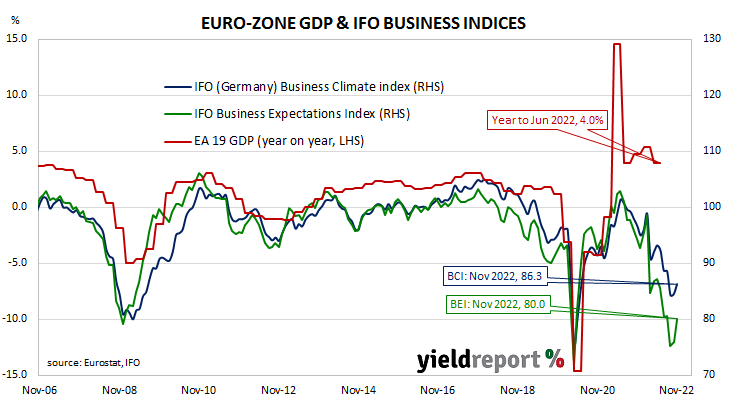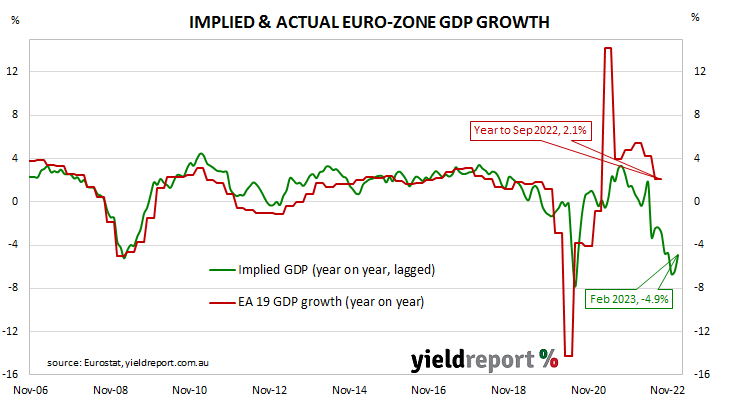Summary: ifo business climate index up in November, above expected figure; “recession could prove less severe” than previously expected; current conditions index down, expectations index up; expectations index implies euro-zone GDP contraction of 4.9% in year to February.
Following a recession in 2009/2010, the ifo Institute’s Business Climate Index largely ignored the European debt-crisis of 2010-2012, mostly posting average-to-elevated readings through to early-2020. However, the index was quick to react in the March 2020 survey, falling precipitously. Readings through much of 2021 generally fluctuated around the long-term average before dropping away this year.
According to the latest report released by ifo, German business sentiment has improved, albeit to a still-depressed level. November’s Business Climate Index recorded a reading of 86.3, higher than the generally expected figure of 85.0 as well as October’s final reading of 84.5. The average reading since January 2005 is just under 97.
“While companies were somewhat less satisfied with their current business, pessimism regarding the coming months reduced sharply,” said Clemens Fuest, President of the ifo Institute. ”The recession could prove less severe than many had expected.”
German firms’ views of current conditions deteriorated slightly while their outlook improved. The current situation index declined from October’s figure of 94.2 to 93.1 while the expectations index increased from 75.9 after revisions to 80.0.
German and French long-term bond yields both fell noticeably on the day. By the close of business, the German bund yield had shed 14bps to 2.18% and the French 10-year bond rates had lost 15bps to 2.71%.
The ifo Institute’s business climate index is a composite index which combines German companies’ views of current conditions with their outlook for the next six months. It has similarities to consumer sentiment indices in the US such as the ones produced by The Conference Board and the University of Michigan.
It also displays a solid correlation with euro-zone GDP growth rates. However, the expectations index is a better predictor as it has a higher correlation when lagged by one quarter. November’s expectations index implies a 4.9% year-on-year GDP contraction to the end of February.



